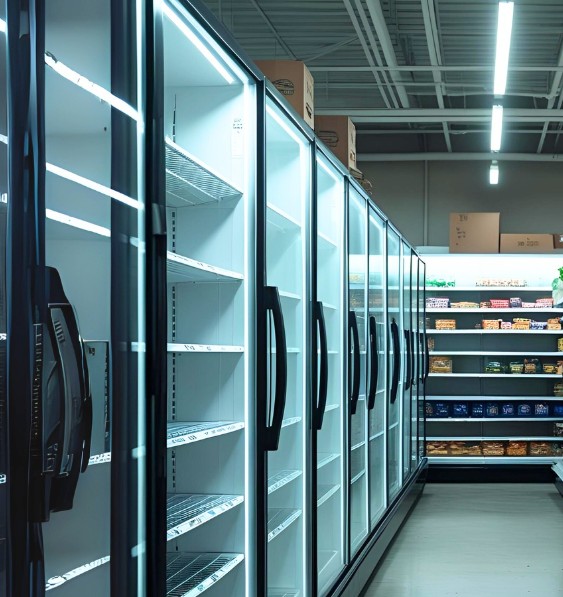South Africa’s looming food security crisis is escalating as government drags its feet in facilitating the resumption of imports from regions free of bird flu in Brazil.
South Africa imports 20% of its annual poultry consumption as local producers are simply unable to meet the demand.
The supply gap filled by poultry imports amounts to approximately 390,000 metric tonnes per year including mechanically de-boned meat (MDM).
Brazil supplies 73% of South Africa’s total poultry imports and 92% of its MDM, which is used to produce processed meats such as polony, viennas, russians, and sausages.
In the wake of the recent Brazilian poultry ban, meat producer Eskort has warned that South Africa is at risk of a mid-winter food security crisis.
Eskort CEO, Arnold Prinsloo, described the implications of the MDM supply shortage in the production of processed meat products:
“Once combined with other ingredients, such as fat, water and binders, 1kg of meat yields about 2.13kg of finished meat products. Assuming a 100g portion size per meal, this translates to more than 404 million meals per month,” Prinsloo explained.
“That means the actual impact on the food system and vulnerable communities could be significantly higher than estimated,” Prinsloo added.
Brazil has already submitted a zoning application to South Africa, which is yet to be formally acknowledged by the Department of Agriculture, according to Prinsloo.
Zoning, otherwise known as regionalisation, would allow Brazil to export to South Africa from regions free from bird flu.
The meat production giant has urged the Department of Agriculture to expedite Brazil’s zoning agreement application, emphasising that a pragmatic and proactive approach to regionalised imports could be instrumental in averting South Africa’s impending food crisis.
Local supply disputes
While the South African Poultry Association (SAPA) asserts that local producers can increase production, industry stakeholders argue that this alone will not compensate for the loss of imports.
Compounding the crisis, Daybreak Farms, a key poultry producer, has entered business rescue due to financial mismanagement and liquidity constraints.
Daybreak supplies a significant share of South Africa’s poultry. The Company has struggled to maintain operations, resulting in disruptions in supply and further market instability.
The Association of Meat Importers and Exporters (AMIE) has warned that South Africa may face serious economic and food insecurity consequences due to the recent bird flu outbreak in the state of Rio Grande do Sul
Imameleng Mothebe, CEO of AMIE, says, “Chicken offal and MDM are not luxuries. They are foundational to school feeding programmes, and the production of processed meats which are the most affordable proteins for low-income households. Ultimately, Brazilian MDM is the source of over 400 million poultry-based meals per month for South Africa.”
“Whilst we appreciate the commitment by SA poultry producers to increase their production by 4 million birds per month during the closure of Brazil poultry exports, the fact is that local producers alone cannot fill the gap in the production of offal and SA effectively does not produce MDM at commercial scale. In addition, alternative international markets also do not have the scale or available supply of the product mix to replace Brazil’s exports to South Africa.”
AMIE further states that processed meat producers are facing cost surges as inventory levels are thinning, and shelf prices are starting to reflect this reality. MDM prices have surged from R13 to R31 per kilogram.
Despite clear indications of price hikes and shortages, Dr Mpho Maja of the Department of Agriculture, Land Reform and Rural Development (DALRRD) stated in an ENCA interview that there would be no concern for poultry shortages or price increases.
This claim has been widely contested by industry stakeholders. On the ground, importers and processors are unable to secure alternative poultry supply, highlighting stark inconsistencies between official statements and reality.
Shrinking Markets
The World Organisation for Animal Health (WOAH) maintains a list of self-declared bird flu-free countries, providing potential alternative markets for poultry imports.
According to WOAH, global markets that are currently declared free of bird flu, but remain closed to South-African importers, include:
- Belgium
- Denmark
- Sweden
- France
It is vital for the South African Department of Agriculture to re-open these markets as soon as possible to at least partially sustain global poultry supply. However, these markets cannot fully compensate for the shortfall caused by the absence of Brazil, a dominant player in the global market.
Countries such as Japan, and the UAE have restricted only the municipality of Montenegro, in the state of Rio Grande do Sul, Brazil.
Countries restricting only the 10km radius of focus are Algeria, Egypt, El Salvador, Hong Kong, Mauritius, Lesotho, Myanmar, New Caledonia, Paraguay, French Polynesia, St Kitt and Nevis, Singapore, Suriname, Uzbekistan, Vanuatu, and Vietnam.
Saudi Arabia, Angola, Bosnia & Herzegovina, Montenegro, United Kingdom, Tajikistan, Turkey, Ukraine, EAEU (Russia and 4 other countries), Cuba, Bahrein, and Kazakhstan have restricted the state of Rio Grande do Sul.
Namibia, South Africa’s neighbouring country, has also announced resumption of imports of poultry from Brazil, restricting only the state of Rio Grande do Sul.
To safeguard supply chains and ensure market stability, South Africa should consider similar regionalisation agreements and strategic import decisions to mitigate the impacts of fast-shrinking global poultry markets.
Bird Flu Season: Another Cause for Concern
As winter sets in, South Africa enters bird flu season, heightening concerns about domestic outbreaks that could further destabilise poultry supply.
The 2023 bird flu outbreak severely impacted local egg and poultry supply, leading to the culling of millions of birds and causing widespread disruptions across the industry.
With no clear consensus on the rollout of bird flu vaccines, South Africa risks compounding its already impending food security challenges in the months ahead.
This underscores the urgent need for accelerated regionalisation measures and swift policy adjustments to enable heat treatment for poultry imports. Eskort, a leading meat producer, incorporates heat treatment as a standard practice, stating that heating mechanically deboned meat (MDM) above 70°C ensures food safety.
“This is one of the reasons Eskort has not had any food safety issues in its 108-year history,” Prinsloo added.
Further complicating the crisis, the four-to-six-week supply gap caused by the Brazil import ban could leave many processors idle for over 60 days, potentially leading to significant job losses and economic instability, particularly among lower-income consumers.
“This is not just a supply chain crisis—it’s a looming socio-economic and political disaster,” Prinsloo warned.
The Association of Meat Importers and Exporters (AMIE) has strongly advocated for the expedited conclusion of engagements between South Africa and Brazil to minimise the impact on the South African economy and consumers alike.
“The current situation is not just a trade issue; it’s about protecting jobs, businesses, consumer affordability and food security,” AMIE concludes.
Source: ChickenFacts















